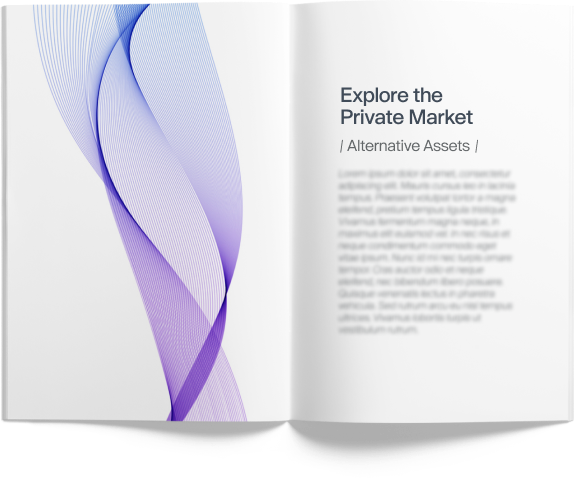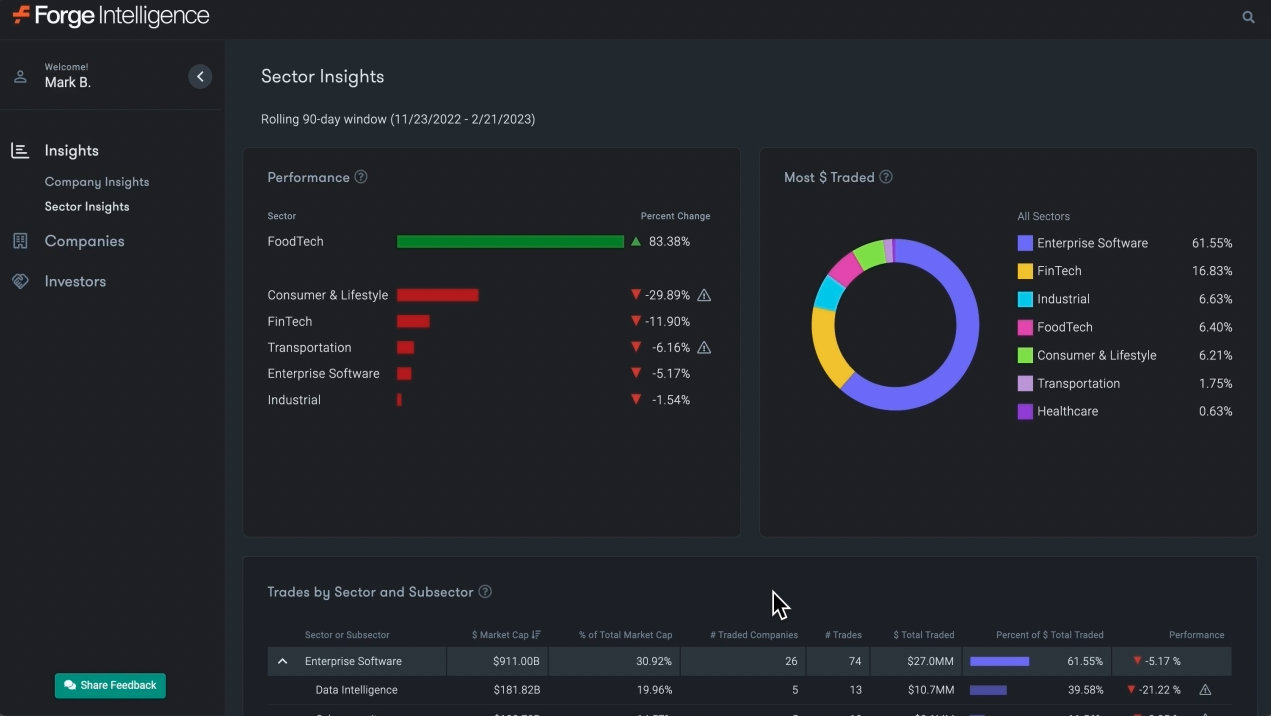Private Market Glossary
What do alternative assets (Alts) mean?
“Alternative assets” (or “alternative investments” or “alts”) refer to several asset classes considered distinct from the “traditional assets” of cash, stocks (i.e., equities), and bonds (i.e., fixed income).
Alternative asset classes include private equity (e.g., venture capital and private equity), private debt, commodities, and rare collectibles. This umbrella term is also used to describe more complex, less regulated investments like hedge funds, managed futures, digital assets/cryptocurrency, and derivatives contracts. Depending on the given investment, real estate may also be considered an alternative asset.

A better understanding of alternative assets
Alternative assets are grouped for their differentiation from traditional assets and some shared characteristics (some of which are listed below)—with one of the most significant being their accessibility. Unlike publicly traded stocks and bonds, alternative asset investing is, in many cases, available only to accredited investors (or, in some cases, to investors satisfying even higher qualification thresholds) due to the different regulatory oversight of these assets.
Although not universal across all examples, alternative assets generally share the following:
- Investors or third parties actively manage the investment if the investment is in the form of a fund or other collective investment operation.
- Investors have greater flexibility to pursue higher returns (e.g., leveraging, shorting), which can come with the risk of higher losses as well.
- Alternative assets tend to be illiquid (e.g., real property, fund withdrawal requirements, or limitations).
- Alternative asset performance sometimes does not correlate to traditional asset classes.
- The asset may not require Securities and Exchange Commission (SEC) registration.
- Less regulation and transparency means investors must be accredited investors or, in some cases, satisfy even higher investor qualification thresholds.
- The required initial investment is often substantial.
- Alternative assets may seek to achieve significantly higher returns than traditional assets, but they may also bring the risk of higher losses.
- This may be due to investors adopting long-term strategies or more complex strategies for alternative assets.
- Greater accessibility restrictions were imposed on investors (eased with recent regulatory changes, for example around the definition of “accredited investor”, but still substantial).
Why are alternative assets playing an important role in the Private Market?
All private market investments are considered alternative assets by nature if not being (publicly traded) stocks, government- or corporate-issued bonds, or cash.
Alternative assets are important in general because they can enable investors to diversify their portfolios in pursuit of seeking high-yield, risk-adjusted returns (with the attendant risk of potentially greater losses). Because alternative assets sometimes do not demonstrate a strong correlation with traditional assets, these allocations can help investors protect their overall portfolio if their traditional asset allocations perform poorly or as a hedge against inflation.
Similarly, alternative asset management may balance long-term, low-risk investments to potentially achieve steady growth alongside riskier, higher-projected-yield investments that result in substantial growth if successful.
What are some examples of alternative assets?
There are different types of alternative assets. Here are some examples to list a few:
- Private equity and venture capital – These investments in private companies (i.e., not listed on a public stock exchange) for a percentage of ownership (i.e., shares) are often made through pooled investment fund structures. Common examples include venture capital funds and individual angel investors. Private equity investors often provide expertise and network access, and/or execute a predetermined strategy to help the company, therefore, their investment generates more profit/return. Private equity funds, which may buy entire companies and seek to increase their value and then sell them, are another example.
- Private debt – Loans made to companies by non-bank entities (e.g., private debt funds) or bank-issued loans purchased on the secondary market. Similar to government-issued bonds providing fixed income, the loan, and interest must be repaid to the lending institution or secondary-market purchaser.
- Commodities – Physical goods and resources, including allocations such as gold and precious metals, oil, steel, water, and livestock. Investors may allocate a portion of their portfolio to commodities in an attempt to hedge against inflation and broader market uncertainty.
- Collectibles – Art, antiquities, and other rarities are expected to maintain or increase their value over time.
- Hedge funds – A professionally managed fund pooled from a limited partnership of multiple investors’ private funds. Collectively, the pooled funds increase available capital and better distribute risk among investors.
- Futures contracts and managed futures – Contractually establish a date and price at which an asset will be bought or sold (or provides the option to do so); “managed futures” are a professionally managed portfolio of futures contracts.
- Derivatives contracts – Securities that contractually attach their value to performance benchmarks for a given asset’s value (e.g., market index, commodity market value, exchange rate), providing investors with an advanced method for speculating on future performance or hedging against risk.
- Real estate – Considered an alternative investment when the given property does not serve as the investor’s primary residence.
Note that this list is not exhaustive. Investors and regulatory entities primarily distinguish alternative assets by their differentiation from cash, stocks, and bonds, so other or emerging asset classes, such as digital assets/cryptocurrency may be considered “alternative” as well.



